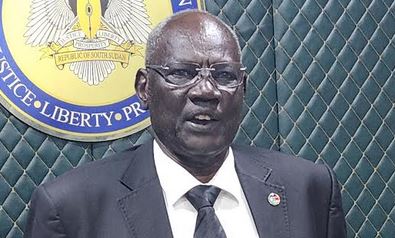The South Sudan Ministry of Information, Communication, Telecommunication Postal Services, in collaboration with Japan and the United Nations Education, Scientific and Cultural Organization (UNESCO), on Tuesday launched a USD 2.5 million mass media development project aimed at improving access to information during and after the 2026 elections.
The project, which started in 2024 and will run through 2026, also aims to improve civic education and enhance access to information for South Sudanese citizens through infrastructure development, training, and the establishment of community radio stations.
In addition, the project intends to empower young people by enhancing their access to information and equipping them with critical thinking skills to combat disinformation and hate speech.
The project will facilitate the establishment of community radio stations in Terekeka County and at the University of Juba to enhance independent media that provides access to objective domestic and global issues such as the promotion of education and peacebuilding.
This initiative will encourage youth to transition from consumers to active contributors of information, providing them with practical broadcast skills as they prepare for careers in journalism.
Speaking during the launch ceremony, Information Minister Makuei said the first beneficiaries of the project would be journalists across the country through capacity-building training.
“My brothers and sisters, this project is not only for elections, it is the development of the information sector, Media Authority, and the journalists in South Sudan,” he clarified.
Funded by the Japanese government, Makuei said the project will be implemented by UNESCO in the six states Central Equatoria, Lakes, Upper Nile, Unity, Warrap, Western Bahr El Ghazal, and the three administrative areas of Ruweng, Pibor, and Abyei.
“We appreciate Japan and UNESCO, and we want to assure them that this project will be implemented successfully. While this project will develop these facilities, you, the journalists, are the users of these facilities,” he said. “The facilities will be there with all the equipment, but without the journalists, these facilities will not be of help.”
The minister further encouraged the journalists and media houses across the country to be ready to benefit from the project.




